How does it work?
LTE IoT 5 Click is based on the SARA-R510M8S, a cellular module that supports LTE Cat M1/Cat NB2 bands with integrated high-performance standard precision M8 GNSS receiver from u-Blox. It comes in a miniature SARA LGA form factor module that is a drop-in migration from other u-Blox cellular module families. The SARA-R510 series modules provide software-based multi-band configurability enabling international multi-regional coverage in LTE Cat M1/NB2 radio access technologies, supporting a comprehensive set of 3GPP Rel. 14 features that are relevant for IoT applications with data communications up to 1200 kbit/s.
The GNSS RF input of the SARA-R510M8S, designed with 50Ω characteristic impedance and with an internal DC block, is suitable for both active and/or passive GNSS antennas due to the built-in SAW filter followed by an LNA in front of the integrated high performing u-Blox M8 concurrent positioning engine.
This module requires a power supply of 3.8V. Therefore, the Click board™ incorporates an integrated buck (step-down DC-DC) converter, labeled as by . This IC can output up to 3A of current, still maintaining an excellent regulation. Its task is to provide a stable 3.8V power supply, capable of mitigating voltage drops at the input when a high current peak appears (typically at the StartUp of the device).
The SARA-R510M8S communicates with MCU using the UART interface with automatic baud rate detection used for module control from the external application host processor that can be conveniently configured through that u-Blox provides. This Click board™ is also USB 2.0 compliant, equipped with the USB type C connector with a maximum 480 Mbit/s data rate available for the diagnostic purpose only. The module itself acts as a USB device and can be connected to any USB host equipped with compatible drivers.
Besides two female SMA connectors (for LTE and active GNSS antennas), the LTE IoT 5 Click also has a nano-SIM card slot that provides multiple connections and interface options. The J1 header allows you to access the configurable GPIO and EXT Interrupt pin of the SARA module, while test points labeled from TP1 to TP6 enables you easy FW upgrades and testing of the module.
The onboard active-low push-button labeled as PWR routed to the AN pin on the mikroBUS™ socket represents the Ignition (Power-On) button, which successful action will be indicated by the STAT LED. If the device is already powered up, a LOW pulse with a duration of 1.5s on this pin will power the module down. It is also possible to power down the module by issuing the AT CPWROFF command or with a Reset function routed to the RST pin on the mikroBUS™ socket that will cause an abrupt Power-Down (forced Power-Down) by sending an active low input on this pin with the duration of 10s.
In addition to the Power LED indicator, this Click board™ has two additional LED indicators: the yellow LED labeled as STAT used to visually indicate the Operational Status of the device, and a red LED labeled as TX used to indicate the Network Status.
Customers can future-proof their solutions through over-the-air firmware updates, thanks to the uFOTA client/server solution that utilizes LwM2M, light and compact protocol ideal for IoT. We have also provided accessible test points directly connected to the TxD and RxD pins for FW upgrade purposes.
This Click board™ can be interfaced with both 3.3V and 5V MCUs because a proper logic voltage level conversion is performed by appropriate voltage level shifters, while the on-board LDOs are ensuring that the module is powered by recommended voltage levels.
Specifications
Type
GPS/GNSS,LTE IoT
Applications
LTE IoT 5 Click is ideal for stationary IoT applications that send data only at intermittent intervals such as metering and smart city applications
On-board modules
SARA-R510M8S - two in one package module with the LTE Cat M1/Cat NB2* and integrated GNSS M8 chipset from u-Blox.
Key Features
Optimized specifically for IoT applications, international multi-regional coverage in LTE Cat M1 / NB2 radio access technologies, supporting a comprehensive set of 3GPP Rel. 14 features, interface options and an integrated IP stack, over-the-air firmware updates, integrated GNSS M8 chipset
Interface
GPIO,UART,USB
Compatibility
mikroBUS
Click board size
L (57.15 x 25.4 mm)
Input Voltage
3.3V or 5V
Pinout diagram
This table shows how the pinout on LTE IoT 5 Click corresponds to the pinout on the mikroBUS™ socket (the latter shown in the two middle columns).
| Notes | Pin | Pin | Notes | ||||
|---|---|---|---|---|---|---|---|
| Power-On | PWR | 1 | AN | PWM | 16 | RI | Ring Indicator |
| Reset | RST | 2 | RST | INT | 15 | CTS | Clear to Send |
| Ready to Send | RTS | 3 | CS | RX | 14 | TX | UART TX (transmit) |
| NC | 4 | SCK | TX | 13 | RX | UART RX (receive) | |
| NC | 5 | MISO | SCL | 12 | NC | ||
| NC | 6 | MOSI | SDA | 11 | NC | ||
| Power Supply | 3.3V | 7 | 3.3V | 5V | 10 | 5V | Power Supply |
| Ground | GND | 8 | GND | GND | 9 | GND | Ground |
Onboard settings and indicators
| Label | Name | Default | Description |
|---|---|---|---|
| LD1 | PWR | - | Power LED Indicator (Green) |
| LD2 | TX | - | Network Status LED Indicator (Red) |
| LD3 | STAT | - | Module Status LED Indicator (Yellow) |
| T1 | PWR | - | Module Power-On Button |
| JP1 | VCC SEL | Left | Logic Voltage Level Selection 3V3/5V: Left position 3V3, Right position 5V |
| JP2 | GNSS ANT | Left | Active GNSS Antenna Voltage Selection 3V3/5V: Left position 3V3, Right position 5V |
| JP3 | - | Populated | UART Data Terminal Ready / AUX UART Data Input (Active Low) |
| JP4 | - | Populated | USB Detect Input (Remove 0 ohm resistor for disabling this feature) |
| TP1 | - | - | UART Request to Send - Test point |
| TP2 | - | - | UART Clear to Send - Test point |
| TP3 | - | - | UART Data Output - Test point |
| TP4 | - | - | UART Data Input - Test point |
| TP5 | - | - | UART Data Set Ready / AUX UART Request to Send - Test point |
| TP6 | - | - | UART Data Carrier Detect / AUX UART Data Output - Test point |
| J1 | - | Unpopulated | Configurable GPIO / Interrupt Pins |
LTE IoT 5 Click electrical specifications
| Description | Min | Typ | Max | Unit |
|---|---|---|---|---|
| Supply Voltage | -0.3 | - | 7 | V |
| Operating Frequency Range | 700 | - | 2100 | MHz |
| Operating Temperature Range | -40 | - | 85 | °C |
Software Support
We provide a library for the LTE IoT 5 Click as well as a demo application (example), developed using MikroElektronika . The demo can run on all the main MikroElektronika .
Library Description
The library covers all the necessary functions to control LTE IoT 5 Click board™.
Package can be downloaded/installed directly from NECTO Studio Package Manager(recommended way), downloaded from our LibStock™ or found on mikroE github account.
Key functions:
-
void lteiot5_cfg_setup ( lteiot5_cfg_t *cfg );- Config Object Initialization function. -
LTEIOT5_RETVAL lteiot5_init ( lteiot5_t *ctx, lteiot5_cfg_t *cfg );- Initialization function. -
void lteiot5_default_cfg ( lteiot5_t *ctx );- Click Default Configuration function.
Examples description
This example reads and processes data from LTE IoT 5 Click.
void application_task ( void )
{
if ( app_connection_status == WAIT_FOR_CONNECTION )
{
lteiot5_send_cmd_check( Sending message to phone number...rn" );
lteiot5_send_text_message(
The full application code, and ready to use projects can be installed directly from NECTO Studio Package Manager(recommended way), downloaded from our or found on .
Other mikroE Libraries used in the example:
- MikroSDK.Board
- MikroSDK.Log
- Click.LTEIoT5
Additional notes and informations
Depending on the development board you are using, you may need , or to connect to your PC, for development systems with no UART to USB interface available on the board. The terminal available in all MikroElektronika , or any other terminal application of your choice, can be used to read the message.
mikroSDK
This Click board™ is supported with - MikroElektronika Software Development Kit. To ensure proper operation of mikroSDK compliant Click board™ demo applications, mikroSDK should be downloaded from the and installed for the compiler you are using.
For more information about mikroSDK, visit the .

 Cart(
Cart(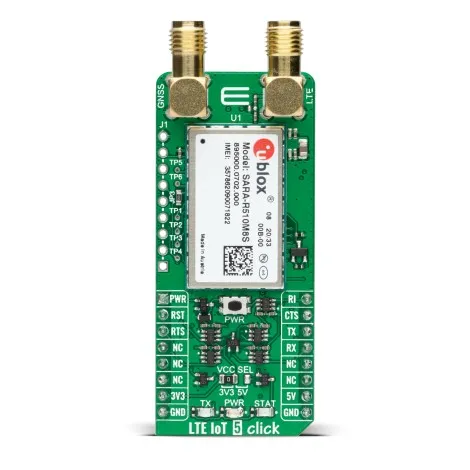
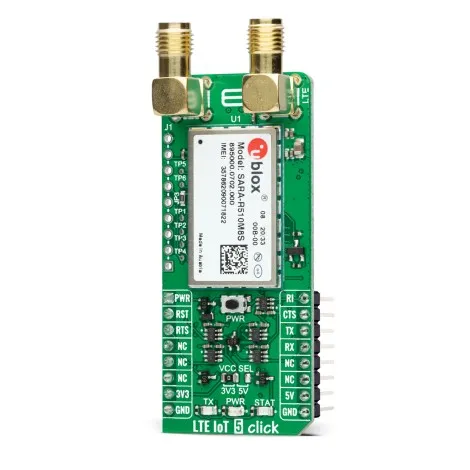
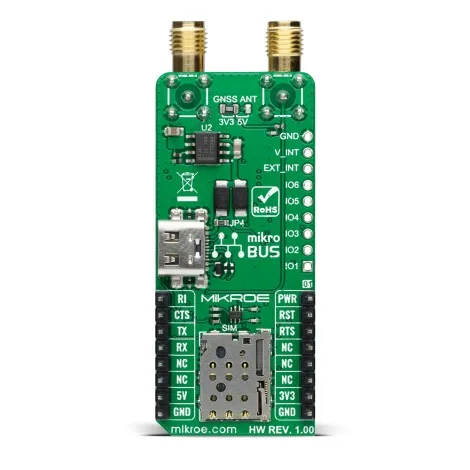
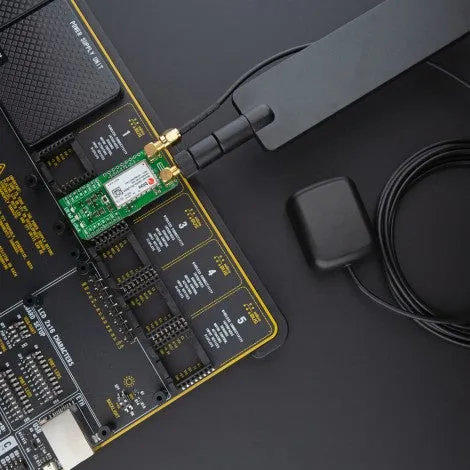
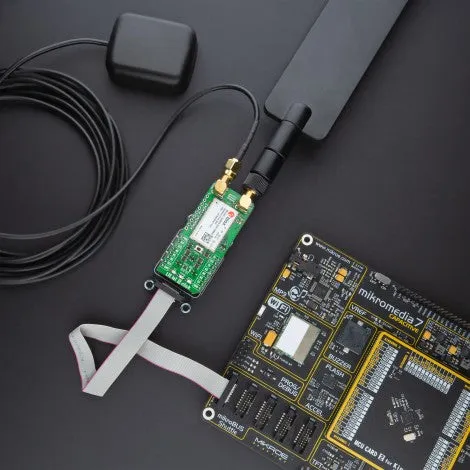
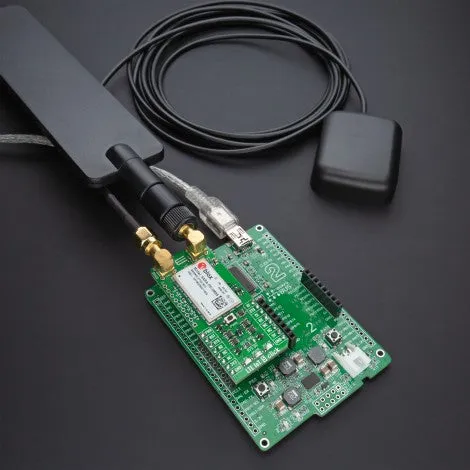
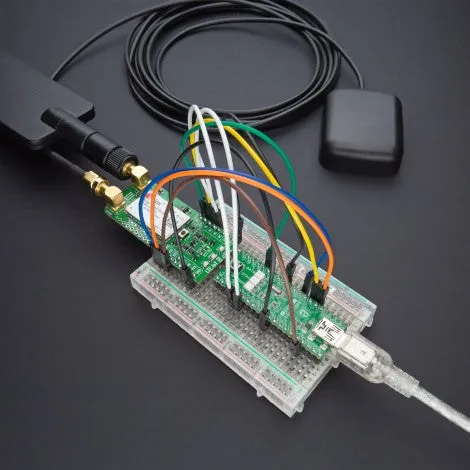

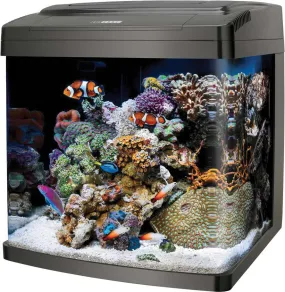



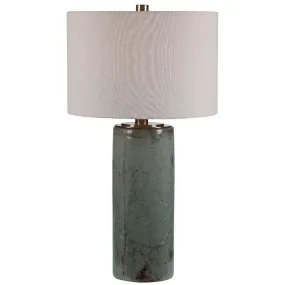



![Horizon Quadro 4 Person Bench Square Legs Office Workstation [1800L x 700W] Horizon Quadro 4 Person Bench Square Legs Office Workstation [1800L x 700W]](https://www.tabnchart.shop/image/horizon-quadro-4-person-bench-square-legs-office-workstation-1800l-x-700w_C8y3nZ_285x.webp)
